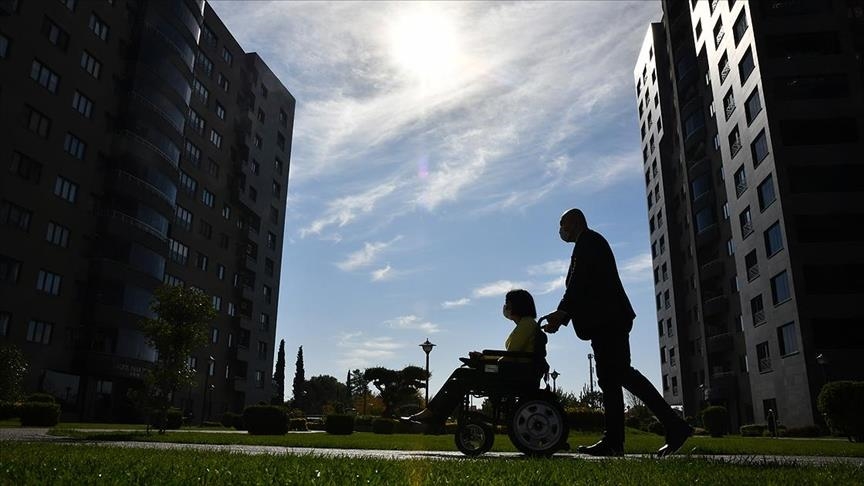ALS still a mystifying disease in 2022
Motor Neuron Disease associations across the globe mark June 21 as a special day of recognition
 File Photo
File Photo
ANKARA
Although the coronavirus pandemic got ahead of all the other diseases over the past two years, there was a time when people took the Ice Bucket Challenge in 2014 as part of a fundraising campaign for motor neuron diseases.
Yet Amyotrophic Lateral Sclerosis (ALS), commonly known as Lou Gehrig's disease, after the baseball player who was diagnosed with it, is still considered a diverse and decidedly mystifying disease.
Each year, Motor Neuron Disease (MND) associations across the globe mark June 21 as a special day of recognition, acknowledging the impact that MND has on people around the world.
ALS is a progressive neurodegenerative disease that affects nerve cells in the brain and spinal cord that control your muscles, according to the ALS Association.
As your muscles get weaker, it becomes more difficult to do such things as walk, talk, eat and even breathe.
"Amyotrophic” comes from the Greek language. "A" means no. "Myo" refers to muscle. "Trophic" means nourishment. So amyotrophic means "no muscle nourishment,” and when a muscle has no nourishment, it "atrophies" or “wastes away," according to the definition of the association.
The 2014 ALS Ice Bucket Challenge enabled the ALS Association to increase its annual funding for research around the world by 187%. During this time, ALS researchers made scientific advances, care for people living with ALS expanded and investment in disease research from federal governments grew.
The first symptoms of ALS, which occurs with progressive muscle weakness without pain and sensory impairment, usually begin with weakness or thinning in the arms and legs.
Over time, patients develop difficulties in engaging in daily habits such as holding a pencil, buttoning a button and carrying a bag and may stumble while walking. In some people, symptoms of the disease begin with difficulty in speaking and swallowing.
While 10% of ALS cases are inherited, the cause of 90% is unknown. ALS mostly occurs between the ages of 45-55 but can also be seen at younger or older ages and is more common in men.
According to Johns Hopkins University, estimates suggest that ALS is responsible for as many as five of every 100,000 deaths in people aged 20 or older. The incidence of ALS worldwide is about one in 50,000 people per year, equating to around 5,760 to 6,400 new diagnoses annually.
If the patients do not receive any care support, they die within three to five years because they also lose their respiratory functions. However, if care support is given in a timely manner, many patients can cling to life and live for more than 10 years.
The Ice Bucket Challenge went viral on social media in the summer of 2014 as a campaign to promote awareness of ALS and encourage donations for research. A person is filmed as a bucket of water and ice is dumped over their head. The individual then nominates a minimum of three people to do the same thing and make a donation to the Amyotrophic Lateral Sclerosis Association.


